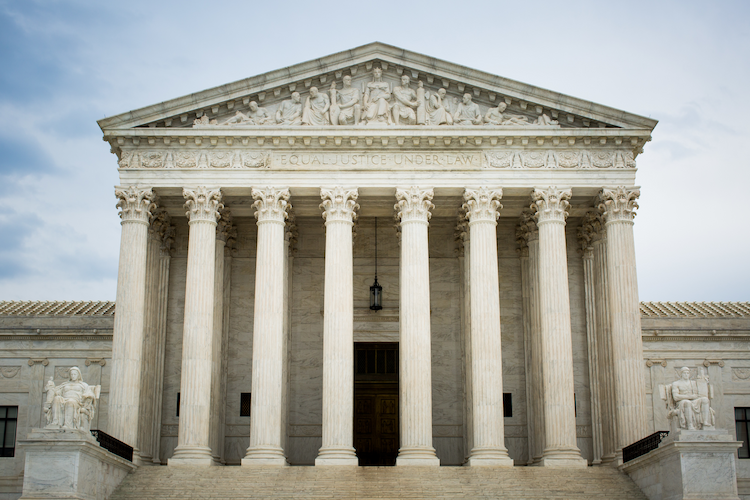Mathews v Eldridge Clarifies Due Process Requirements in Administrative Proceedings
Historical
In Mathews v Eldridge, 424 U.S. 319 (1976), the U.S. Supreme Court held that the termination of disability benefits without a pre-termination hearing did not violate the Due Process Clause of the Fifth Amendment.
Facts of Mathews v Eldridge
A few years after George Eldridge was first awarded disability benefits for his chronic anxiety and back pain, he received and completed a questionnaire from the monitoring state agency. After considering the information contained therein and obtaining reports from his doctor and an independent medical consultant, the agency informed Eldridge that it had tentatively determined that his disability had ceased in May, 1972, and advised him that he might request a reasonable time to furnish additional information. In a reply letter, Eldridge disputed one characterization of his medical condition and indicated that the agency had enough evidence to establish his disability. The agency then made its final determination reaffirming its tentative decision. The Social Security Administration (SSA) accepted the determination and notified Eldridge that his benefits would end the next month and that he had a right to state agency reconsideration within six months.
Instead of requesting reconsideration, Eldridge filed suit, challenging the constitutionality of the procedures for terminating disability benefits and seeking reinstatement of benefits pending a hearing. The District Court, relying in part on Goldberg v. Kelly, held that the termination procedures violated procedural due process and concluded that prior to termination of benefits Eldridge was entitled to an evidentiary hearing of the type provided welfare beneficiaries under Title IV of the Act. The Court of Appeals affirmed.
Court’s Decision in Mathews v Eldridge
By a vote of 6-2, the Supreme Court reversed. “An evidentiary hearing is not required prior to the termination of Social Security disability payments, and the administrative procedures prescribed under the Act fully comport with due process,” Justice Lewis F. Powell, Jr. wrote on behalf of the majority.
In reaching its decision, the majority emphasized that “due process is flexible and calls for such procedural protections as the particular situation demands.” According to the Court, determining the constitutional sufficiency of administrative procedures prior to the initial termination of benefits and pending review requires consideration of three factors:
(1) the private interest that will be affected by the official action; (2) the risk of an erroneous deprivation of such interest through the procedures used, and probable value, if any, of additional procedural safeguards; and (3) the Government’s interest, including the fiscal and administrative burdens that the additional or substitute procedures would entail.
In reaching its decision, the Court distinguished the case from Goldberg v. Kelly, highlighting that “the private interest that will be adversely affected by an erroneous termination of benefits is likely to be less in the case of a disabled worker than in the case of a welfare recipient.” As Justice Powell further explained:
Eligibility for disability payments is not based on financial need, and, although hardship may be imposed upon the erroneously terminated disability recipient, his need is likely less than the welfare recipient. In view of other forms of government assistance available to the terminated disability recipient, there is less reason than in Goldberg to depart from the ordinary principle that something less than an evidentiary hearing is sufficient prior to adverse administrative action.
Previous Articles
SCOTUS Rules FBI Must Face Lawsuit Over No-Fly List
by DONALD SCARINCI on April 25, 2024
In FBI v. Fikre, 601 U.S. ____ (2024), the U.S. Supreme Court held that Yonas Fikre’s lawsuit aga...
SCOTUS Considers Pair of High-Profile First Amendment Cases
by DONALD SCARINCI on April 22, 2024
The U.S. Supreme Court heard oral arguments in six cases last week, with two potential First Amendm...
Supreme Court Clarifies When Public Officials Can Be held Liable for Social Media Activity
by DONALD SCARINCI on April 10, 2024
In Lindke v. Freed, 601 U.S. ____ (2024), the U.S. Supreme Court ruled that public officials may b...
The Amendments
-
Amendment1
- Establishment ClauseFree Exercise Clause
- Freedom of Speech
- Freedoms of Press
- Freedom of Assembly, and Petitition
-
Amendment2
- The Right to Bear Arms
-
Amendment4
- Unreasonable Searches and Seizures
-
Amendment5
- Due Process
- Eminent Domain
- Rights of Criminal Defendants
Preamble to the Bill of Rights
Congress of the United States begun and held at the City of New-York, on Wednesday the fourth of March, one thousand seven hundred and eighty nine.
THE Conventions of a number of the States, having at the time of their adopting the Constitution, expressed a desire, in order to prevent misconstruction or abuse of its powers, that further declaratory and restrictive clauses should be added: And as extending the ground of public confidence in the Government, will best ensure the beneficent ends of its institution.




